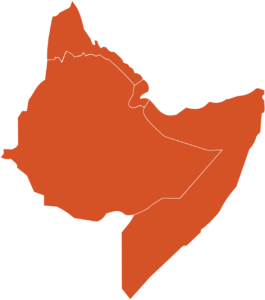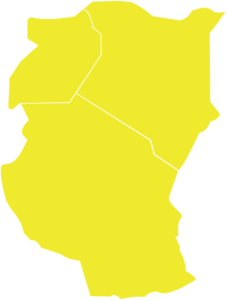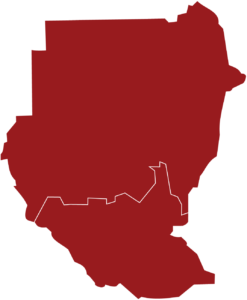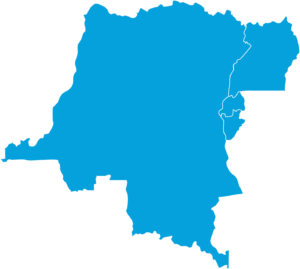Where we work
RVI’s geographical area of operation covers four subregions of Eastern and Central Africa: the Sudans, the Horn of Africa, East Africa and the Great Lakes.
The Horn of Africa consists of Ethiopia, Eritrea, Djibouti, Somalia and Somaliland. The Institute has worked in the region since 2008, mostly in Somalia, Somaliland and Ethiopia, where we have had an office since 2023.
Notable recent or ongoing projects and partnerships include:
- The Somali Dialogue Platform, which since 2023 has been funded under the Somali Stability Fund (SSF), works to facilitate agreement amongst Somalis on contentious political issues and has produced a body of research work to inform this.
- The Ethiopia Peace Research Facility, supported by the UK government, carries out research on peace, conflict and issues related to social cohesion in Ethiopia.
- Research in Somalia, Somaliland and Ethiopia under the UK government’s XCEPT (Cross-Border Conflict Evidence, Policy and Trends) programme.
- Support for the Hargeysa Cultural Centre in Somaliland, including the annual Hargeysa Book Fair.
Other major projects in recent years include: work with the World Bank on urbanization (2020) and tax in Somalia; a study on the influence of the Gulf states and Turkey in the region (2021); andsupport for early career scholars from Somalia as part of the Diaspora Humanitarianism project. In previous years, RVI carried out studies on elections in Somaliland (2015); land in Mogadishu (2017); and the impact of war on Somali men, amongst others. RVI has also run the Horn of Africa field course, most years, since 2008, when the first course was held in Djibouti.
The East Africa region usually comprises Kenya, Tanzania, Uganda and Somalia (Somalia is included under the Horn of Africa programme). RVI’s operational headquarters is in Nairobi, Kenya. Prior to this, Nairobi was the location of the Institute’s regional office for East Africa. In 2012, the Institute established the Rift Valley Forum for Research, Policy and Local Knowledge, previously the Nairobi Forum, to promote critical discussion of political, economic, and social issues in the wider region. The Forum organises debates, seminars, lectures and book launches in Nairobi and online, bringing together researchers, policy makers, activists and representatives of affected communities. RVI training courses have been held at various locations in Kenya and Uganda, including Lamu, Kilifi, Lukenya, Nairobi, Jinja and Entebbe. The Research Communities of Practice project, which builds research capacity in the region working with and mentoring early career researchers, is run from RVI’s offices in Nairobi.
RVI has worked in Sudan and South Sudan (‘the Sudans’) continuously since 2001. Southern Sudan was the location of RVI’s first project – an eighteen-month investigation of abduction and enslavement in South Sudan during the civil war – and Juba, where the Institute maintains an office, remains an important hub for our work.
At present, the Institute is involved in the following major projects in the Sudans:
- South Sudan Women’s Research Network, supported by the European Union, which promotes local women’s voices in research development and heritage preservation through mentorship, training and grants.
- Research on the Sudan – South Sudan border under the XCEPT (Cross-Border Conflict Evidence, Policy and Trends) programme. This builds on a body of work in South Sudan and Sudan already produced by the project.
- A new phase of work in the South Sudan National Archives (SSNA) funded by the Norwegian government – building on more than a decade of work with the SSNA focused on the preservation and digitization of the archive collection.
- A research project on the lessons from Sudan’s Juba Peace Agreement, supported by the United States Institute of Peace (USIP) was recently concluded.
In recent years, RVI has carried out research with the United Nations’ Food and Agriculture Organization (FAO) on programming related to seeds provision and pastoralism in South Sudan; the Swiss government on a project focused on the continued importance of customary authorities in the country; and with the British Council in Khartoum on the history of elections in Sudan. Other notable projects in the Sudans over the last two decades include field-based analysis of local peace processes in north and south; studies of electoral processes and local justice; and two major studies of the north-south border zone, ‘When Boundaries Become Borders’ (2010) and ‘The Kafia Kingi Enclave’ (2010).
Beginning in 2004, the Institute has held an annual, residential course dedicated to the Sudans, first in Rumbek, in Lakes State, subsequently in Jinja, Uganda, and latterly in Naivasha, Kenya. The Sudan Handbook published in 2011, is a byproduct of the Sudans course. In 2004, the RVI launched the Sudan Open Archive, which offers free digital access to knowledge about all regions of Sudan and South Sudan. The RVI collaborates with a range of organisations in the Sudans, including the Sudd Institute, the Gurtong Trust, the South Sudan Law Society, the University of Juba and the Catholic University of South Sudan.
Africa’s Great Lakes region encompasses Rwanda, Burundi, the eastern provinces of the Democratic Republic of the Congo, and parts of western Uganda. RVI has worked in the region since 2010 when the Institute held its first Great Lakes Course in Entebbe, Uganda. The course has since then been held in Bujumbura (Burundi) and Jinja (Uganda). In 2012 the RVI launched the Usalama Project (‘peace’ or ‘security’ in Swahili), a multi-year programme of research, publication and public discussion aimed at building a deeper understanding of armed groups in the eastern DRC, with a view to providing a knowledge base for the reform of the Congolese armed forces. The project, which ended in 2019, had three phases: 1) Understanding Congolese armed groups (2012-2013); 2) Governance in Conflict (2015-2016); and 3) Insecurity in the City (2018–2019). Subsequently, RVI has carried out research in the DRC on the political economy of land in Bukavu as part of the Just Future alliance.
Recent Publications

EWNET Writes: Writing Workshop Session I
The Ethiopian Women Researchers Network (EWNET) inaugural writing workshop series aims to not only provide women researchers with uninterrupted time for their scholarly projects, but

SSC-Khaatumo: Perspectives on the significance and implications of its formation
On 15 April 2025, during a visit to the city of Las Anod in Sool, Prime Minister Hassan Abdi Barre officially declared the federal government’s

Aid and Conflict Sensitivity in Contemporary Ethiopia
This study assesses conflict sensitivity practices among humanitarian, development and peacebuilding (HDP) actors in Ethiopia. It seeks to raise awareness and foster a deeper understanding




